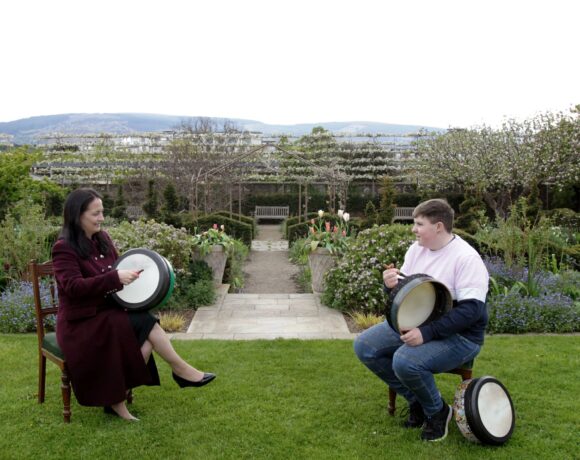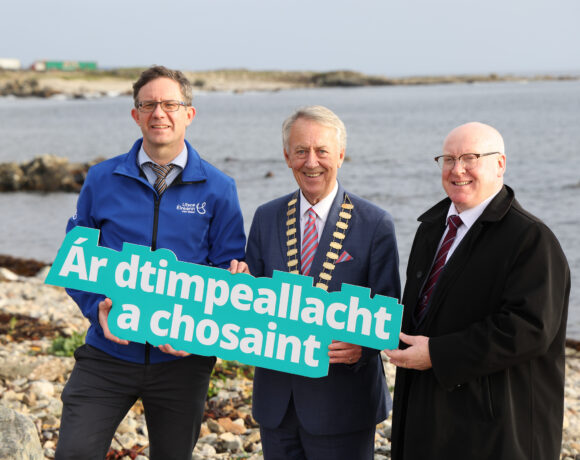The goal of the Sláintecare Healthy Communities Programme is to improve the long-term health and wellbeing of 19 communities across Ireland. The programme takes a place-based approach to tackling health inequalities with a focus on the determinants of health.
Health inequality impacts on life expectancy, the risk of chronic disease and the general health of a person. The significant investment under the Sláintecare Healthy Communities programme allow us to work in partnership with local authorities and local community groups to further enhance supports for tobacco cessation, healthy eating, parenting and social prescribing in the area. This investment and partnership approach will empower people to make healthier lifestyle choices to improve their overall physical and mental health and wellbeing.
19 areas of greatest need have been identified by the Health Service Executive (HSE), the Department of Health and Local Authorities, using the HP deprivation index, based on the 2016 census. Some of these areas are located in our major cities, whilst others are in rural towns and areas. The communities identified have on average 24,000 people and a broad mix of population types.
This programme includes the provision of targeted supports by the HSE in areas including smoking cessation, parenting, nutrition and social prescribing. Local Authorities have employed Local Development Officers and have been provided funding to improve public realm and fund locally identified projects to improve health and wellbeing. The Department of Health are working across Government with the Slaintecare Oversight Group to coordinate interventions and policy responses.
Another support within the Programme is An Integrated Alcohol Service, being rolled out to provide support for people with harmful alcohol use and their families. The community-based team consists of four counsellors, a nurse, and a project worker. These services, being currently piloted in Cork and Limerick, are working closely with Alcohol Liaison Nurses in hospitals so that there is a joined-up approach to service delivery across community and hospital settings.
The Healthy Communities Programme supports not only the physical and mental health of people living in the Sláintecare Healthy Communities; but also supports improvement in the wider determinants of health, including education, social support and the built environment.
Each of the respective local authorities have signed a Service Level Agreement (SLA) to coordinate and support the Sláintecare Healthy Communities Programme with the Local Community Development Committees and their existing Healthy City and Healthy County plans as well as recruiting Healthy Community Local Development Officers to coordinate activity from a local authority perspective. This increase in resource for local authorities is aimed at integrating the health and wellbeing agenda with their broader agenda and supporting a social determinants approach to health inequalities. To support the work of the Local Development Officer, each local authority has been given a budget of €75,000 per community to fund projects identified within the community that will support health and wellbeing, 110 projects were funded in 2022.
Additionally, the Sláintecare Healthy Communities Programme Enhancement Fund is a scheme to support infrastructural projects that could positively impact on the health and wellbeing of those who live within the programme area. A fund of €250,000 was allocated to each Local Authority area under the Sláintecare Healthy Communities Programme to support projects that provided added value from a social determinants of health perspective, 63 enhancement projects commenced in 2022*.
Minister of State with Responsibility for Public Health, Wellbeing and the National Drugs Strategy, Hildegarde Naughton, said, “Sláintecare Healthy Communities is a collective programme where we all work together to ensure that our communities in greatest need are supported to live longer, healthier lives. The health services cannot make these changes happen alone. To make real and lasting change we need to work together to create communities where people can thrive. Our local community partners know better than anyone else what challenges their community faces and the strengths within it. They have the relationships and trust of the community and will be a key to the success of this programme as they are already embedded into the local community.”













